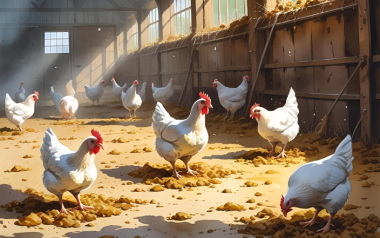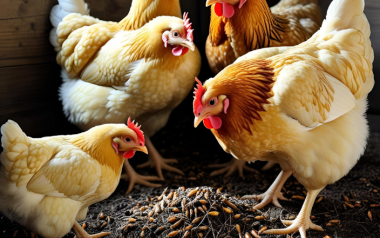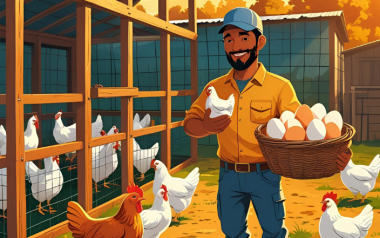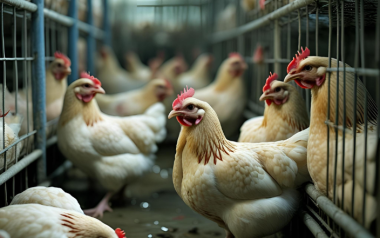Sources: Available upon request.
31 Oct 2024
Climate-neutral eggs in Belgium
In a significant step towards sustainable agriculture, climate-neutral eggs are now available in Belgium. This initiative is spearheaded by Lidl, a major supermarket chain, in collaboration with Kipster, a Dutch company renowned for its environmentally friendly farming practices.
In a significant step towards sustainable agriculture, climate-neutral eggs are now available in Belgium. This initiative is spearheaded by Lidl, a major supermarket chain, in collaboration with Kipster, a Dutch company renowned for its environmentally friendly farming practices.
The Kipster concept
Kipster’s approach to egg production is revolutionary. Established in the Netherlands in 2017, Kipster farms are designed with the welfare of animals, the environment, and people in mind. The chickens at Kipster farms are free to roam both indoors and outdoors, mimicking their natural behavior. They are fed leftovers from the food industry, such as bakery waste, which helps reduce food waste. Additionally, the farms operate entirely on solar energy, further minimizing their carbon footprint.
Kipster’s innovative design includes well-ventilated barns with natural light, which significantly improves the living conditions of the chickens. The farm’s layout also includes green roofs and walls, which contribute to biodiversity and help regulate the temperature inside the barns. These features make Kipster farms a model of sustainable and humane animal husbandry.
Challenges in Belgium
Despite the success of Kipster in the Netherlands, replicating this model in Belgium has proven challenging. Efforts to establish a similar farm in Belgium were hindered by difficulties in finding suitable locations and convincing local farmers to adopt the Kipster model. However, Lidl Belgium remains committed to introducing Belgian consumers to climate-neutral eggs. As a result, they have decided to import these eggs from the Netherlands.
The decision to import rather than produce locally is seen as a temporary measure. Lidl and Kipster are actively working to overcome the logistical and regulatory hurdles that have so far prevented the establishment of Kipster farms in Belgium. They are hopeful that with continued effort and collaboration with local stakeholders, they will soon be able to produce climate-neutral eggs within Belgium itself.
Environmental and economic impact
The introduction of climate-neutral eggs in Belgium is a response to the growing demand for sustainable agricultural practices. These eggs are not only better for the environment but also economically viable. They are priced similarly to organic eggs, making them accessible to a broader range of consumers. The packaging is also fully biodegradable, aligning with the overall sustainability goals of the initiative.
Future prospects
Lidl and Kipster hope that the success of climate-neutral eggs in Belgium will inspire local farmers to adopt more sustainable practices. By showcasing the benefits of this innovative approach, they aim to stimulate the Belgian egg production market and encourage a shift towards more environmentally friendly methods. This initiative is part of a broader effort to meet governmental demands for sustainable agriculture and reduce the environmental impact of food production.
In conclusion, the availability of climate-neutral eggs in Belgium marks a significant milestone in the journey towards sustainable agriculture. Through the collaboration between Lidl and Kipster, Belgian consumers now have the opportunity to make more environmentally conscious choices. This initiative not only addresses environmental concerns but also sets a precedent for future sustainable farming practices in the region.








































